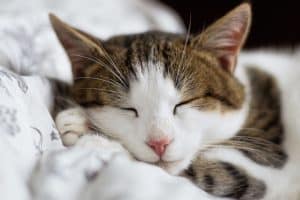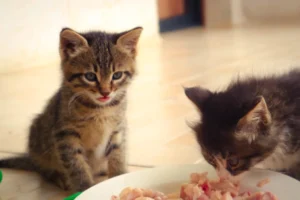Cats are known for being mysterious and independent creatures, but when it comes to miscarriages, many pet owners are left wondering why this happens. Understanding the reasons behind why cats have miscarriages can help owners provide the best care for their feline companions.
Cats Have Miscarriages Due to Various Factors
Common Causes of Cat Miscarriages
Cats, just like humans, can experience miscarriages, and there are several common reasons why this may occur. Infections are a frequent culprit, with bacterial or viral infections posing a risk to the developing fetuses. Hormonal imbalances can also disrupt the delicate balance needed for a successful pregnancy, leading to miscarriages. Additionally, genetic abnormalities can play a role, especially if the cat has inherited certain genetic mutations that affect fetal development. It is essential for cat owners to be aware of these common causes and take proactive steps to minimize the risk of miscarriages in their furry companions.
Signs and Symptoms of Cat Miscarriages
When it comes to recognizing a potential miscarriage in your cat, it’s crucial to pay attention to certain signs and symptoms. Vaginal bleeding or discharge may indicate a miscarriage, as well as lethargy and loss of appetite. Keep an eye out for abdominal pain, contractions, or passing of fetal tissue as well. If you notice any of these signs, it’s important to seek veterinary care immediately to ensure the health and well-being of your cat.
Additional Unique Insight: Cats are known for their ability to hide pain and discomfort, so it’s essential to be vigilant and observant of any subtle changes in behavior that could indicate a miscarriage.
Remember, early detection and intervention can make a significant difference in the outcome of a potential miscarriage, so always err on the side of caution when it comes to your cat’s health.
Preventing Cat Miscarriages
Cat miscarriages can be a heartbreaking experience for pet owners. To help reduce the risk of miscarriages in cats, it’s essential to provide proper nutrition and regular veterinary check-ups. Ensuring your cat is on a balanced diet with all the necessary nutrients can promote a healthy pregnancy. Additionally, regular visits to the vet can help catch any potential issues early on and ensure the overall health of your cat.
It’s also crucial to minimize stress in your cat’s environment. Cats are sensitive creatures, and excessive stress can have a negative impact on their pregnancy. Providing a calm and safe space for your cat can help reduce the chances of a miscarriage.
Handling a Cat Miscarriage
Experiencing a cat miscarriage can be emotionally challenging for both the cat and the owner. If you suspect your cat has had a miscarriage, it’s important to seek veterinary care immediately. A vet can provide guidance on how to best support your cat during this difficult time and ensure that she receives the necessary care.
During this process, it’s crucial to offer your cat comfort and support. Keep her warm and provide a quiet space for her to rest. Offer plenty of water and ensure she is eating to maintain her strength. Be patient and understanding with your cat as she goes through this traumatic experience.
Unique Insight: While it’s heartbreaking to witness a cat miscarriage, it’s essential to remember that it’s not always preventable. Sometimes miscarriages occur due to genetic abnormalities or other factors beyond our control. Providing a loving and supportive environment for your cat during this time is crucial for her well-being.
Emotional Impact on Pet Owners
Experiencing a cat miscarriage can be incredibly challenging for pet owners, causing a range of emotions from sadness to guilt. It’s essential to remember that these situations are often beyond our control and that seeking support is crucial during these tough times. If you’re struggling to cope with the loss, consider reaching out to friends, family, or a support group. Remember, it’s okay to grieve and take the time you need to heal. Additionally, consulting with a veterinarian can provide insight into the possible causes of the miscarriage and help prevent future occurrences.
Interesting Facts About Cat Reproduction
Curious about how cats reproduce? Did you know that female cats can become pregnant as early as four months old and can go into heat multiple times a year? Cats are induced ovulators, meaning they release eggs in response to mating, which is why they can have multiple fathers in one litter. Another interesting fact is that a female cat’s pregnancy usually lasts around 63-65 days. Additionally, female cats are known to be very secretive during labor and delivery, often seeking out secluded areas to give birth. Keep these fascinating facts in mind as you learn more about the wonders of feline biology.
Fun Fact: A cat’s heat cycle can be influenced by various factors, including daylight and temperature changes. Understanding these factors can help pet owners recognize when their cat is in heat and potentially prevent unwanted pregnancies.
Alex, a passionate animal lover, has experience in training and understanding animal behavior. As a proud pet parent to two dogs and three cats, he founded AnimalReport.net to share insights from animal experts and expand his knowledge of the animal kingdom.




